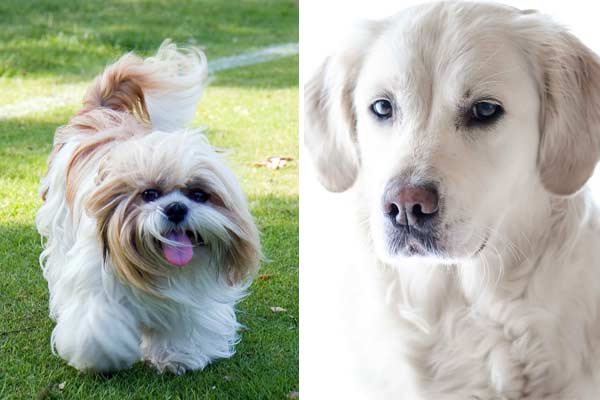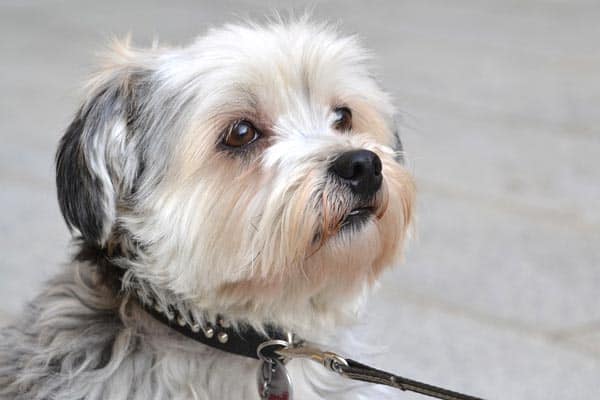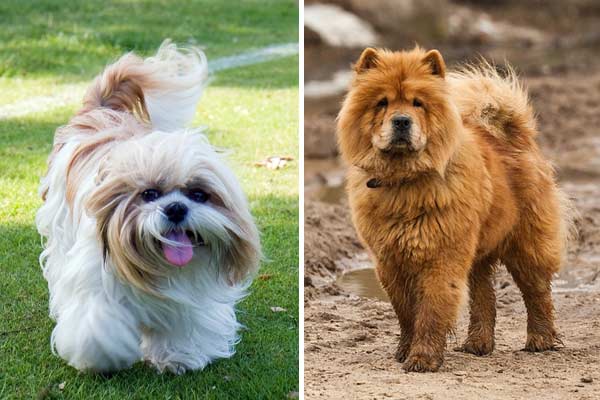How Often Should a Shih Tzu Poop: Important Tips for Bowel Health

Dealing with dog poop is likely never going to be your favorite part of having a canine companion.
But examining your Shih Tzu poop and tracking pooping frequency is going to be one of the most important things you can do for your dog’s health.
Just like with people, dogs give a lot of signals about their health through their bowel habits. The color, consistency, and frequency of your Shih Tzu poop is an early warning indicator you cannot afford to ignore.
In this article, learn how often a Shih Tzu should poop and find out other important tips to protect your dog’s bowel health.
How Often Should a Shih Tzu Poop
A healthy adult Shih Tzu should poop at least once per day and ideally after each meal.
however, A Shih Tzu puppy may be less regular as their digestive tract continues to grow and they gain more control over their bowels.
Learn About Potty Training a Shih Tzu Puppy
In this YouTube video, you can learn about potty training a Shih Tzu puppy from an experienced dog owner.
In the video, you will get tips to help your puppy learn appropriate elimination from the first day you bring them home.
What Do You Need to Know About Your Shih Tzu’s Poop
There are several things you need to know about your Shih Tzu dog’s poop to make sure your dog is healthy.
This Scrumbles dog poop chart gives you a good visual overview of what we are about to talk about step by step.
Shih Tzu poop frequency
Frequency is just another word for regularity. How regular is your Shih Tzu?
If you are letting your dog out in the backyard to pee and poop, you may not be fully aware of whether or how often your dog poops.
This means you are potentially missing important information that could alert you to any developing health problems.
Life indeed gets busy and you may not be able to be standing right there every time your dog goes to the bathroom.
But it is smart to take time at least once each day to check your dog’s waste for the following traits.
Shih Tzu poop consistency
Here, consistency means what the texture of the poop is. Is your Shih Tzu doing solid, well-formed poops or loose, runny stools with lots of water in them?
There are lots of reasons why your pup’s poop might change inconsistency from one day to the next or even one meal to the next.
Diet, age, gender, health, water intake – all of these factors and more can create stools that are hard and dry or runny and watery and anywhere in between.
Ideally, when your Shih Tzu poops, you want to see well-formed, solid yet not hard or dry stool. If you see something different than this, you want to pay attention and start to investigate why.
For example, as Emergency Vets USA points out, if the poop is super hard and rock-like, this can indicate an issue with dehydration or even the onset of constipation.
And if the poop is consistently runny or watery, this might point to a gastrointestinal issue such as food intolerance.
Shih Tzu poop color
Color is another important indicator of overall bowel and digestive health. Your dog’s poop might go through temporary minor color changes based on diet, but if these do not clear up in a day, you will want to investigate further.
Overall, Shih Tzu poop should stay in the brown range color-wise. As Canine Journal points out, these colors can give you a heads-up of potential health issues:
- Brown poop: this is typically regarded as a normal poop color.
- Black poop: might be deep internal bleeding – this is urgent!
- Red poop: might be near-surface or surface bleeding.
- Green poop: could be due to eating grass or might be ingestion of rodenticide or parasites in the intestine (the latter two are urgent).
- White poop: white dots might be tapeworms while white blotches or streaks could be excess minerals getting excreted.
- Yellow or orange poop: dietary changes or issues with the liver or pancreas could cause yellow to orange poop.
- Purple or pink poop: deep internal bleeding or gastroenteritis could be the cause – this is urgent!
- Grey poop: if your dog’s poop looks grey and/or greasy, this could be a dietary intolerance due to pancreas problems.
Shih Tzu poop size
According to the American Kennel Club (AKC), a fully grown adult Shih Tzu is unlikely to weigh more than 16 pounds.
This is a very tiny dog that will do very small poops!
So you shouldn’t be too concerned about the size of the stools your Shih Tzu does as long as they stay consistent from one bowel movement to the next.
A good rule of thumb to ask yourself is – is the size of the poop about the same size as the meal your dog just ate? If it is, chances are all is well, size-wise at least, in your dog’s digestive tract.
Shih Tzu poop shape
As long as your dog is eating food that is healthy and well-tolerated, you should expect to see poop that is the same shape from one bowel movement to the next.
The shape should be a small log when it comes out. And the poop should generally stay together in this shape even as you scoop it up.
Age can play a part in the shape of your Shih Tzu’s poop as well.
Very young, elderly, or infirm dogs may lack the strength or focus to stay in the pooping position until all the waste comes out.
If your dog is very young, elderly, or ill and you are seeing smaller stools scattered here and there rather than one or two solid logs, this could be the reason.
Other Factors That Could Affect Your Shih Tzu Dog’s Poop
As PetMD explains, not all canine poop problems are due to pure physical health issues.
Dogs, like their people, can experience a change in bowel habits due to other factors as well.
Emotional or situational stressors, such as a move to a new home, a family member leaving for college, the addition of a new pet, a change to your daily schedule, and similar issues can sometimes disrupt the gastrointestinal system.
VCA Animal Hospitals points out that these types of stressors are also a common cause for inappropriate elimination, such as pooping in the house.
If your Shih Tzu has started to pee and poop inside the home instead of outside or on walks, this may be due to physical or emotional/behavioral health triggers.
When to Seek Your Veterinarian’s Help for Shih Tzu Poop Problems
Some problems with Shih Tzu poop might be solved with help from a dog trainer or canine behaviorist.
But other problems require treatment from a qualified canine veterinarian.
It is always smart to address any change in poop habits with a veterinary exam. This can rule out or identify and treat any underlying physical health issues.
Then you can move on to work with a dog trainer or behaviorist to address any co-occurring emotional, behavioral, or situational stressors that could be contributing to irregular Shih Tzu pooping habits.





